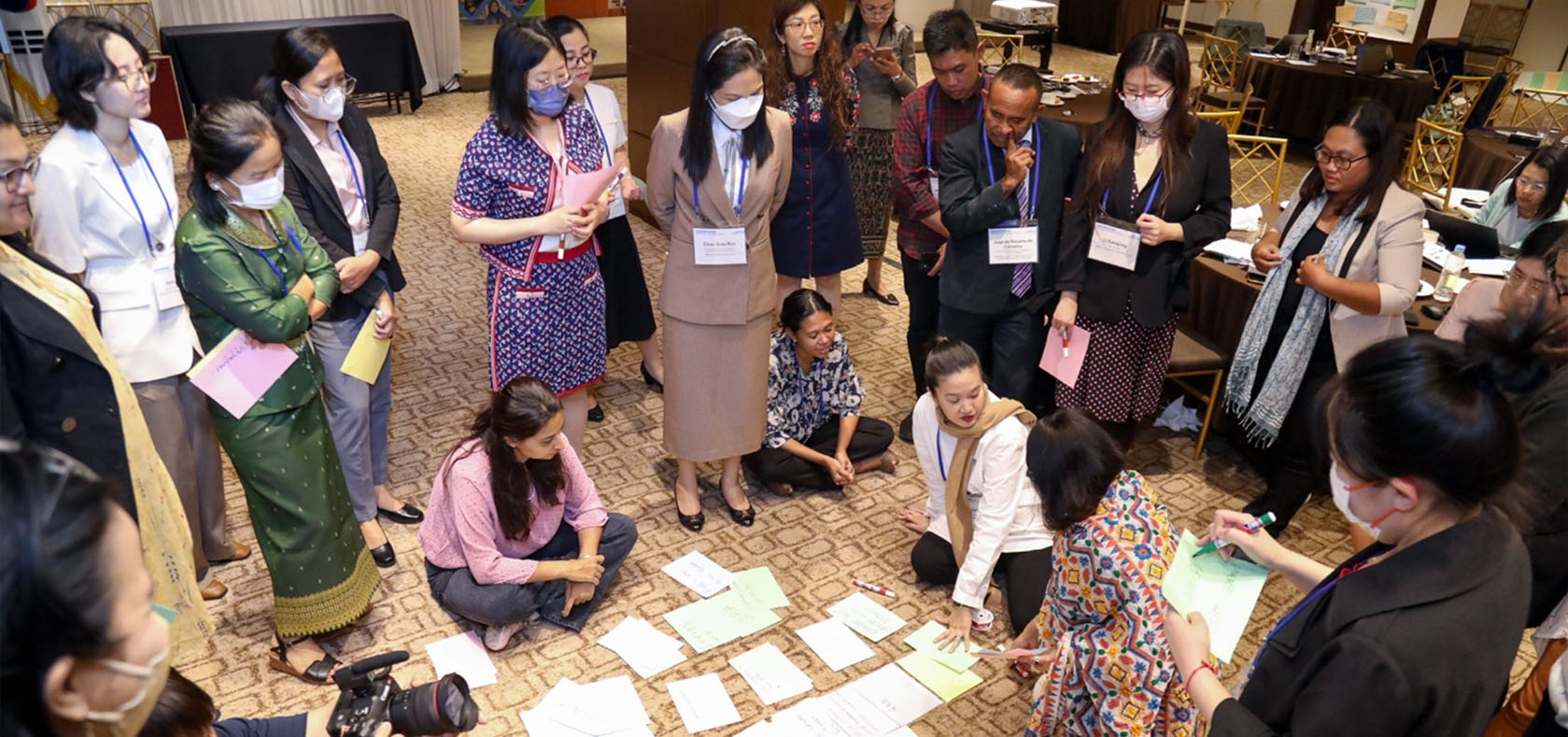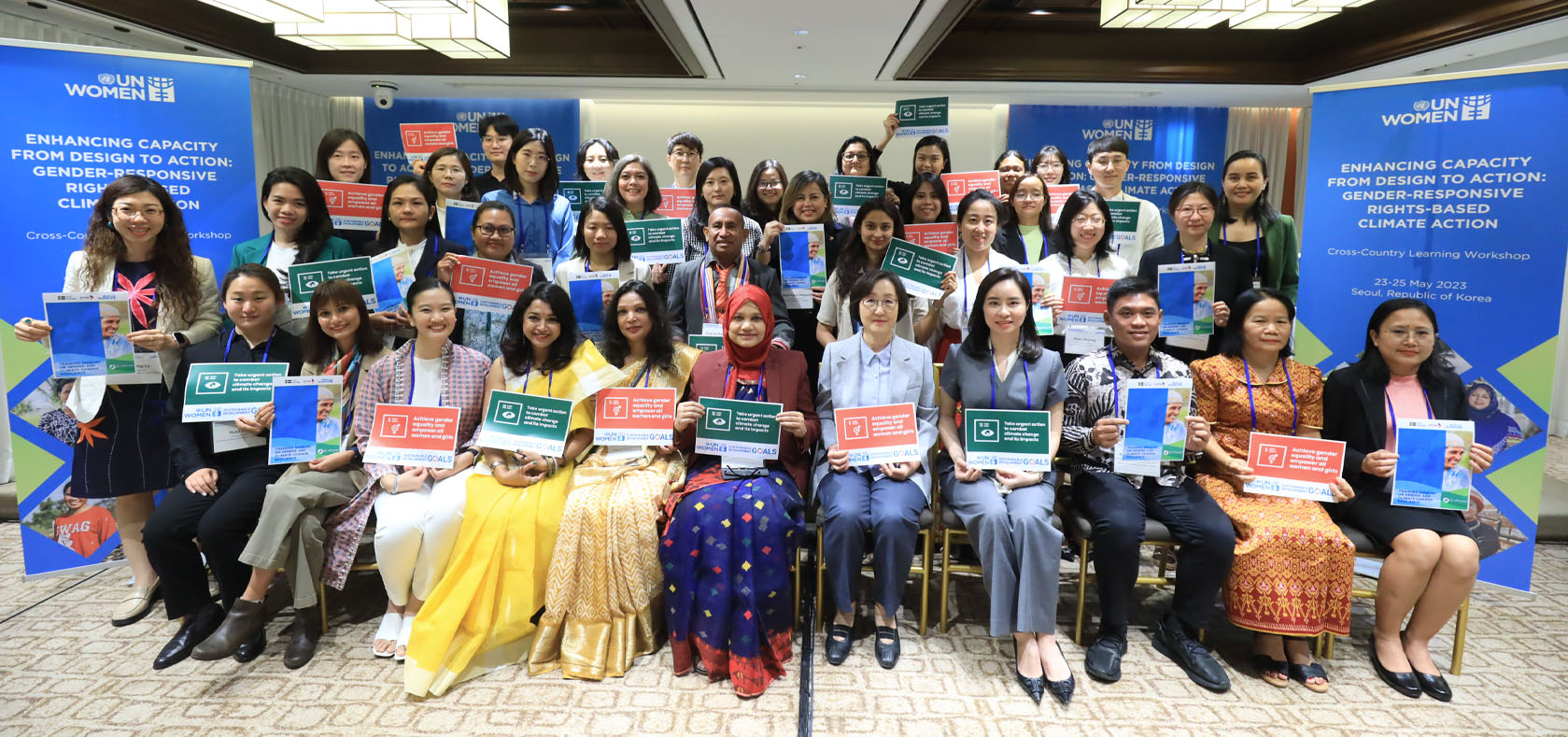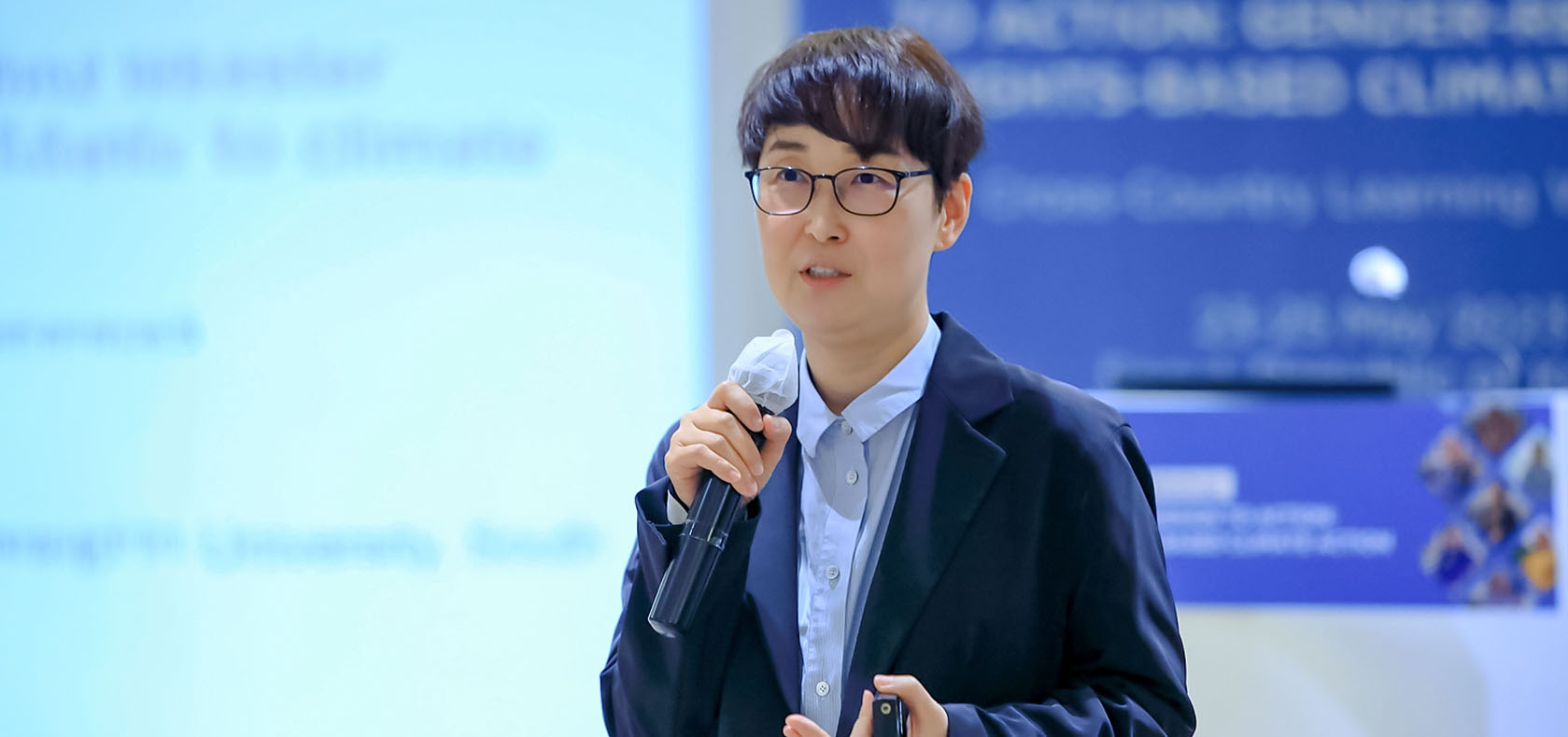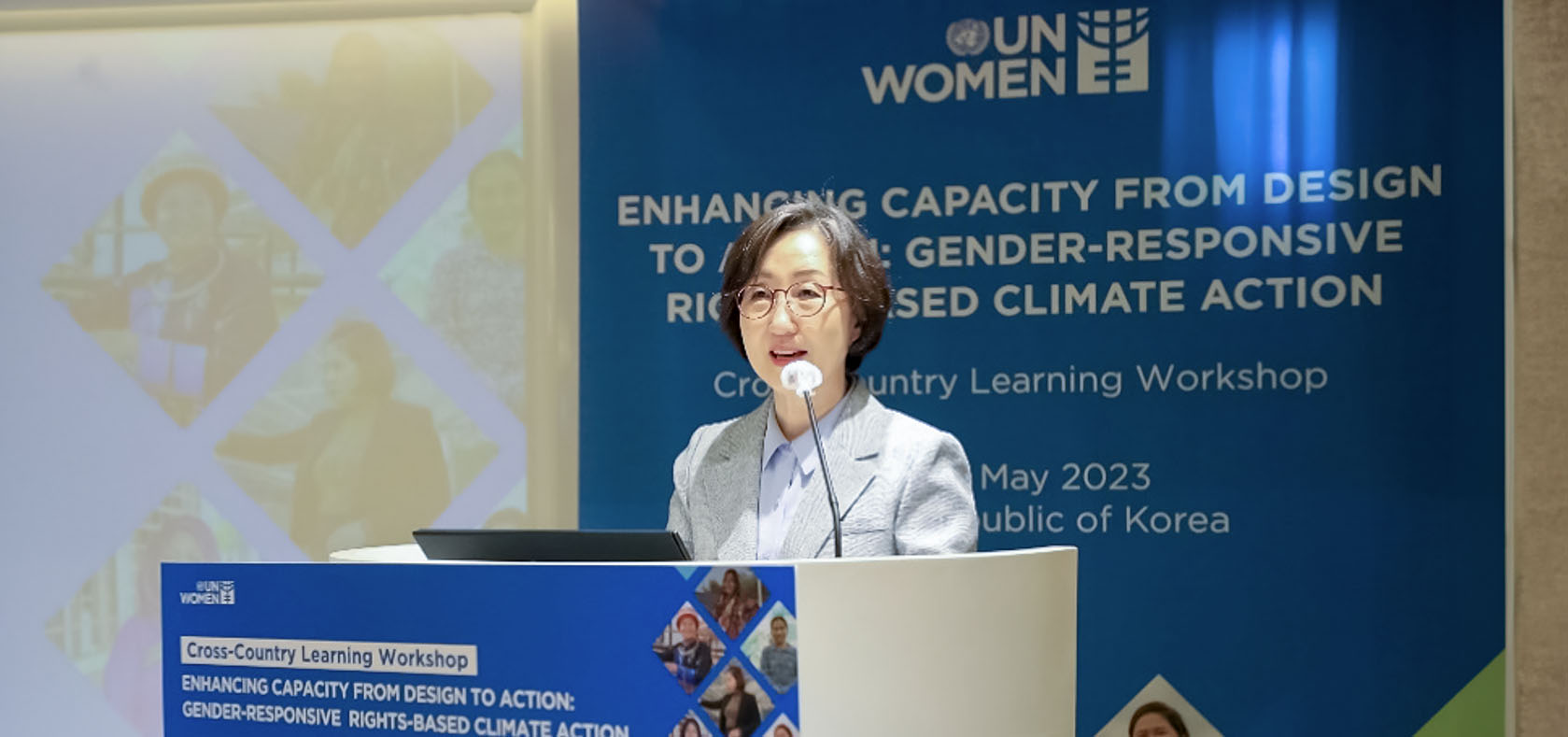English | 한국어
Seoul, Republic of Korea — "I have come to explore more effective approaches in other countries for integrating a gender perspective into the core of our climate policy in my home country,” said Nguyen Hoang Anh, Vice Director of the Department of Information, Commmunications and Training from Viet Nam Women's Union.
Despite their diverse experiences and backgrounds, more than 40 government officials and experts from eight different countries convened in Seoul in May 2023, for the three-day workshop “Enhancing Capacity from Design to Action: Gender-Responsive Rights-Based Climate Action.”
As part of the training, participants gathered in a circle to share their insights on the critical need for gender-responsive climate action. With a heartfelt understanding on how women and girls bear a disproportionate impact from climate change, each participant penned down actionable points they can implement in their respective roles upon returning to their home countries.

The cross-country learning workshop underlined the importance of bringing together governments and other stakeholders to foster a culture of learning and accountability to enable climate actions for women and the most marginalized communities in Asia. Photo: UN Women/Seung Jae Kim
Funded by the Ministry of Gender Equality and Family of the Republic of Korea and hosted by the UN Women Centre of Excellence for Gender Equality, the workshop aimed to strengthen Asian government stakeholders' capacity to advance gender and climate actions in policies and programs. The workshop gathered collective voices of government representatives and experts from Bangladesh, Cambodia, Indonesia, Nepal, the Philippines, the Republic of Korea, Viet Nam, Timor-Leste and the ASEAN Committee on Women, as well as ASEAN senior officials on the environment. With a commitment to becoming an influential actor in the global effort to combat climate change, the Republic of Korea provided a platform for cross-country learning and collaboration.

43 government representatives and experts from Asia gathered in Seoul for the 3-day workshop on “Enhancing Capacity from Design to Action: Gender-Responsive Rights-Based Climate Action.” Photo: UN Women/Seung Jae Kim
Given the increasing ocurrence of climate disasters in the Asia-Pacific region, the workshop emphasized the need to bring together governments and stakeholders to foster a culture of learning and accountability. The region has experienced an escalating number of earthquakes, cyclones, floods, landslides, and tsunamis, making it the world's most disaster-prone area. The 2023 Asia-Pacific Sustainable Development Goals (SDGs) Progress Report indicated a shortfall in meeting SDG 13, which focuses on climate action, and lagging commitments under the Paris Agreement.
During the three-day workshop, country-specific case studies, including examples from the Republic of Korea, were shared to highlight the importance of considering gender perspectives in climate change response, adaptation and mitigation. Professor Gunhui Chung from Hoseo University stated, "The proportion of men who responded that they can directly perform emergency treatment or have received relevant training for disasters and emergencies is 56.9 per cent, while women's response rate is only 30 per cent." He emphasized, "With the recent increase in the frequency of climate disasters such as floods and droughts, it is essential to take social measures and provide education to prevent vulnerable women groups from suffering from such disasters."

Professor Gunhui Chung from Hoseo University. Photo: UN Women/ Seung Jae Kim
The participants not only focused on adaptation but also shared national lessons on gender mainstreaming in mitigation efforts. For example, Cambodia presented its Nationally Determined Contributions (NDCs) which is a country action plan to reduce national greenhouse gas emissions and adapt to the impacts of climate change under the Paris Agreement. T.E Vouchlim, Director of Planning and Statistics at the Ministry of Women's Affairs of Cambodia emphasized, "Conducting regular gender assessment is critical to identify evidence-based policy recommendations for gender and climate actions.”
The participants also stressed the significance of climate financing to facilitate gender-responsive adaptation and mitigation policies and programs. Representatives from the Philippines and Indonesia shared their experiences in tagging budgets and expenditures for gender and climate actions. They highlighted efforts to harmonize climate and gender budgeting policies to track the implementation of financial commitments for gender and climate actions.

Jeongshim Lee, Director of UN Women Centre of Excellence for Gender Equality said that “The region has seen the development of gender and climate action, demonstrating the potential for scaling up and replicating gender-responsive climate action in more countries.” Photo: UN Women/Seung Jae Kim
“The region has seen the development of gender and climate change action, demonstrating the potential for scaling up and replicating gender-responsive climate action in more countries,” said Jeongshim Lee, director of the UN Women Centre of Excellence for Gender Equality. “The cross-country learning workshop is an open and effective space for countries to share promising practices on transformative climate action that has placed women’s and girls’ leadership and agency at the heart of decision-making,” she concluded.
* The workshop used the training manual on Gender and Climate Change Resilience and the e-learning course developed under the UN Women and United Nations Environment Programme (UNEP) regional project EmPower: Women for Climate Resilient Societies Project.



